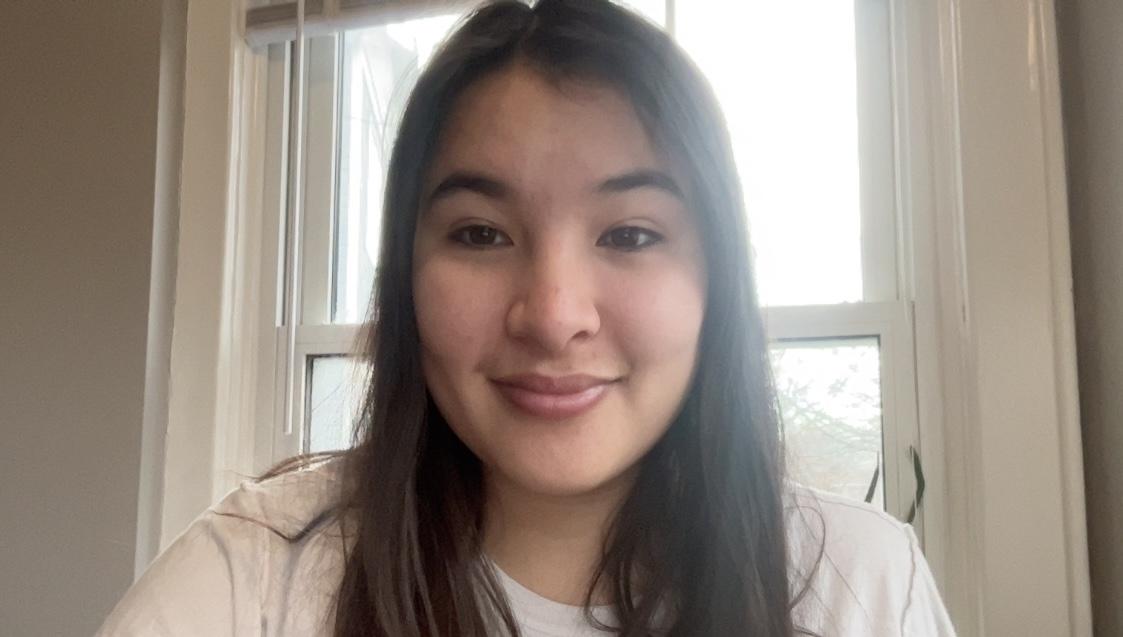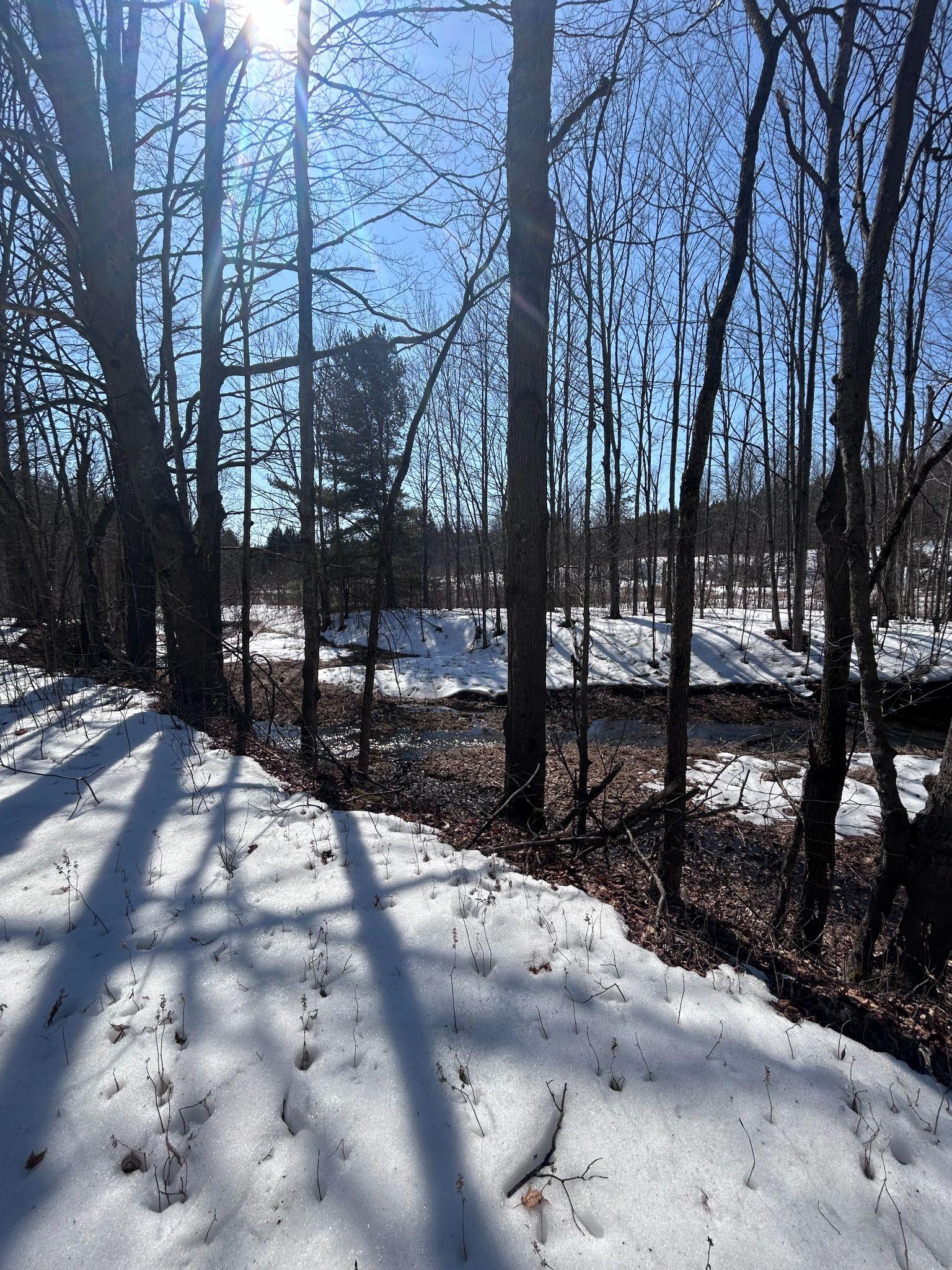 Zoe Sulisz, a recent Bachelor of Education graduate with the Environmental Education concentration at Queen’s University, has spent her year honing her practice of environmental advocacy in the classroom. However, stepping beyond the classroom walls to explore an untraditional placement has transformed Zoe’s relationship with the land most remarkably. “My alternative practicum at Little Cataraqui Creek Conservation Centre was beautiful,” she expresses.
Zoe Sulisz, a recent Bachelor of Education graduate with the Environmental Education concentration at Queen’s University, has spent her year honing her practice of environmental advocacy in the classroom. However, stepping beyond the classroom walls to explore an untraditional placement has transformed Zoe’s relationship with the land most remarkably. “My alternative practicum at Little Cataraqui Creek Conservation Centre was beautiful,” she expresses.
Illuminating visitors of all ages, Zoe led demonstrations about how maple syrup has been made over time. At the conservation centre, building a relationship with the earth is essential to working with the land this way. “Every day, we did a ‘sit-spot’ in nature,” Zoe explains. “We could sit anywhere we wanted, and we were encouraged not to use our phones at all. We checked in with the land to see how we could adapt our lessons and adapt ourselves.” Zoe reflects on how the weather changed day by day, but she always went outside: “One of my most valuable lessons was adapting yourself. You can’t expect nature to adapt; you have to adapt to nature.”
Zoe became so connected to nature that she was known at the conservation centre as ‘Lily Pad’: “We all had nature names,” Zoe shares fondly. “We got to pick our own.” Zoe chose a name in honour of her mother, Lily, bringing a piece of herself and her history to her work space. As she became embedded in the conservation centre community, her network of kinships expanded to include another kind of family. “Both my host and the volunteers feel like the type of people that I could always stay in contact with,” Zoe says. In particular, Zoe shares her gratitude for an Indigenous elder she learned from: “Paul taught us a Nanabush story. He has so many stories – I could listen to him for hours.”
At Little Cataraqui Creek Conservation Centre, Zoe and her peers enhanced their demonstrations about maple syrup through storytelling. “We shared the story of how back in the day, people used to tap trees with buckets. We had buckets all over the place so people could look at the sap and watch it flow,” Zoe describes. “Nowadays, people connect tubes to trees, and the sap flows down a hill. We had those, too; we had all the ways maple syrup can be made at the conservation centre. It’s a bit of history, a bit of science, a bit of storytelling.”
 Visitors to Little Cataraqui Creek Conservation Centre learn not only from the land, but from stories that range from historical to traditional. “One is called ‘The Little Girl and the Squirrel,’” Zoe shares. “‘And there is a Nanabush tale that tells the story of why you can only tap trees in spring. People were being lazy and greedy with the trees, not taking care of the environment, and taking too much. So Nanabush made it harder for them. Now, they can only tap the trees when it's cold at night and warm in the day, and they have to boil it down now.”
Visitors to Little Cataraqui Creek Conservation Centre learn not only from the land, but from stories that range from historical to traditional. “One is called ‘The Little Girl and the Squirrel,’” Zoe shares. “‘And there is a Nanabush tale that tells the story of why you can only tap trees in spring. People were being lazy and greedy with the trees, not taking care of the environment, and taking too much. So Nanabush made it harder for them. Now, they can only tap the trees when it's cold at night and warm in the day, and they have to boil it down now.”
As a blossoming English and Drama teacher, storytelling is especially meaningful to Zoe. She is particularly excited to blend Drama with everything she has learned about environmental education. “Drama is so traditionally inside. How can we bring it outdoors?” she poses. Zoe hopes to bring her students out on the land so they can ground themselves in place, and so their sensory interactions with nature can guide their growing imaginations.
“Areas like Indigenous education and environmental education shouldn’t be limited to one category,” Zoe emphasizes. “They belong in more than NBE classes and outdoor education camps. They need to be in a little bit of everything.” As Zoe ventures out into the world of education, she is set on making her vision come true. “No matter what I do,” Zoe professes, “I will bring environmental education into my work.”
About the Author
Juliette Silveira is a final year Education student at Queen’s University. In 2024, she completed her Bachelor of Arts (Honours) Degree at Queen’s University with a Minor in Dramatic Arts and a Major in English Language & Literature. In July 2025, she will complete her Bachelor of Education degree through the Concurrent Education program. Juliette has spent her time at Queen’s learning to become an Intermediate/Senior Drama and English teacher, and she has focused on Indigenous teacher education through the ITEP program. Passionate about cultivating students’ creativity and critical thinking, Juliette is eager to bring her experience as an actress, musical theatre teacher, creative writer, and literary analyst into her classroom.
